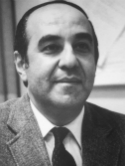Induction chemotherapy employing dose-intense cisplatin with mitomycin and vinblastine (MVP400), followed by thoracic surgery or irradiation, for patients with Stage III nonsmall cell lung carcinoma Journal Article
| Authors: | Ng, K. K.; Kris, M. G.; Ginsberg, R. J.; Heelan, R. T.; Pisters, K. M. W.; Miller, V. A.; Grant, S. C.; Bains, M.; Rusch, V.; Rosenzweig, K. E.; Martini, N. |
| Article Title: | Induction chemotherapy employing dose-intense cisplatin with mitomycin and vinblastine (MVP400), followed by thoracic surgery or irradiation, for patients with Stage III nonsmall cell lung carcinoma |
| Abstract: | BACKGROUND. Cisplatin-based induction chemotherapy before surgery or irradiation has improved the survival of patients with Stage III nonsmall cell lung carcinoma (NSCLC). Encouraged by earlier results with preoperative MVP (cisplatin [120 mg/m2 or 25 mg/m2/week], vinblastine, and mitomycin) for Stage IIIA patients with clinically apparent mediastinal (N2) disease, the authors conducted a Phase II trial of the safety and efficacy of induction MVP400 with the dose intensity of cisplatin doubled from 25 to 50 mg/m2 per week. METHODS. From October 1992 to March 1996, 37 patients with Stage IIIA (26) or Stage IIIB (11) NSCLC began the MVP400 induction chemotherapy program. Four doses of cisplatin (100 mg/m2), 7 doses of vinblastine, and 2 doses of mitomycin were given over 9 weeks. Patients received either surgery or irradiation after induction treatment. RESULTS. Overall, the response rate was 65% (95% confidence interval, 49-81%) with a complete resection rate of 67%. The median survival was 17 months, with 66% of patients alive at 1 year. Complete resection and Stage IIIA involvement were favorable prognostic indicators for survival. No Stage IIIB patients underwent a complete resection. Myelosuppression was the most common side effect. There were no treatment-related deaths. CONCLUSIONS. Although high response and complete resection rates were again demonstrated, results with the MVP400 regimen were not improved over those achieved with MVP regimen tested earlier with Stage IIIA (N2) patients. The authors continue to recommend MVP as an induction chemotherapy regimen for clinical trials. |
| Keywords: | adult; clinical article; aged; middle aged; survival rate; unclassified drug; clinical trial; cisplatin; cancer combination chemotherapy; drug efficacy; multimodality cancer therapy; combined modality therapy; phase 2 clinical trial; lung non small cell cancer; antineoplastic combined chemotherapy protocols; carcinoma, non-small-cell lung; lung neoplasms; antineoplastic activity; vinblastine; vindesine; mitomycin; induction chemotherapy; intravenous drug administration; nonsmall cell lung carcinoma; mitomycins; humans; human; male; female; priority journal; article; locally advanced disease; mvp 400 |
| Journal Title: | Cancer |
| Volume: | 86 |
| Issue: | 7 |
| ISSN: | 0008-543X |
| Publisher: | Wiley Blackwell |
| Date Published: | 1999-10-01 |
| Start Page: | 1189 |
| End Page: | 1197 |
| Language: | English |
| DOI: | 10.1002/(sici)1097-0142(19991001)86:7<1189::aid-cncr13>3.0.co;2-n |
| PUBMED: | 10506703 |
| PROVIDER: | scopus |
| DOI/URL: | |
| Notes: | Article -- Export Date: 16 August 2016 -- Source: Scopus |
Altmetric
Citation Impact
BMJ Impact Analytics
MSK Authors
Related MSK Work












